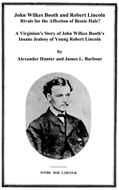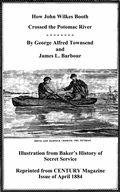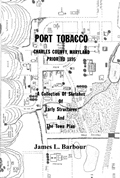| Book |
Description |
Purchase |
 |
Venecia's Earthling: Bill Brady, a highly-placed U.S. official is abducted by the beautiful and otherworldly Venecia and transported across the galaxy to the planet Aequatanus. There he discovers a world at peace with prosperity, health and contentment enjoyed by all its inhabitants. Bill returns to Earth on a mission to promote the principles he has observed. The process begins with proposals for a reformed United Nations, improved continental alliances, and neutralization of weapons of mass destruction along with others. A romance between Bill and his beautiful alien hostess is deftly woven throughout the book to make for an enjoyable read. While fictional in form, VENECIA'S EARTHLING contains a potential blueprint of our evolving world organization and order. The literary content, charts and explanatory notes in particular, set out ideas intended to stimulate constructive thinking as we begin to shape our coming world and move forward in the 21st Century and beyond.
|
 |
 |
 |
John Wilkes Booth and Robert Lincoln - Rivals In Love?: Reprinted in its entirety, is the fascinating tale of jealous rivalry for the affections of the beautiful socialite, (Lucy) Bessie Hale — her suitors being none other than John Wilkes Booth and Robert Lincoln, son of President Abraham Lincoln — the date being 1865 in the days leading up to the President’s assassination. The eye-witness account is that of a Mrs. Temple, who lived at the National Hotel with the Hale family and Bessie, and who was also a friend to both Booth and Lincoln. She provided the account to Alexander Hunter who later published it in 1878 in a Chicago newspaper, the Daily Inter-Ocean. Barbour brings this absorbing story to light once more in this reprint and adds supplemental material in his “After Notes.” As he states, “Many theories have been advanced concerning Booth’s motives for assassinating President Lincoln. This story provides yet another.”
|
 |
 |
How John Wilkes Booth Crossed the Potomac River: This is the story of how John Wilkes Booth, President Abraham Lincoln’s assassin, eluded Federal authorities, escaped from Washington DC, hid in southern Maryland and fled to Virginia across the Potomac River via covert Confederate river-crossing operations, as published in CENTURY magazine’s April 1884 edition. The book also describes the Confederate smuggling system to exchange mail with Confederate operatives and gather intelligence information from the Union states and deliver it to Richmond to assess the impacts of Confederate operations and policies.
|
|
 |
Civil War Era Port Tobacco, Maryland: Established in 1658 and once a thriving seaport, Port Tobacco served as the seat of government for Charles County, MD, for nearly two and a half centuries. The town witnessed the nation’s founding and many subsequent events including the Civil War and the escape of John Wilkes Booth through Southern Maryland. This book contains sketches and descriptions of Port Tobacco as it existed prior to 1895, provided by one of the town’s last residents.
|
 |
